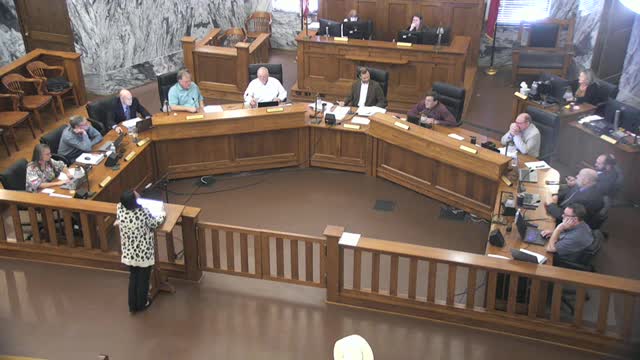Constable Fuller advocates for reserve program amid budget discussions
August 06, 2025 | Johnson County, Texas
This article was created by AI summarizing key points discussed. AI makes mistakes, so for full details and context, please refer to the video of the full meeting. Please report any errors so we can fix them. Report an error »

In a recent meeting of the Johnson County Special Commissioner's Court, discussions centered around the staffing and operational needs of the constable's office, particularly regarding the reserve program and the potential hiring of a new deputy. The meeting highlighted the ongoing debate about resource allocation in light of current service demands.
One of the key points raised was the justification for maintaining reserve positions within the constable's office. A commissioner expressed skepticism about the necessity of these roles, citing that only 612 papers had been issued from January to August, with less than 100 papers served monthly. This statistic led to concerns about whether the current staffing levels were adequate or if they warranted additional positions. The commissioner emphasized that, despite being one voice in the court, the numbers did not support the need for further division of resources.
Constable Fuller provided a counterpoint, advocating for the value of reserve officers who serve the community voluntarily. He acknowledged the liability concerns associated with reserves but argued that they play a crucial role in community service. Fuller also presented a proposal for hiring a new deputy, outlining the associated costs, including a base salary of $63,000, training expenses, and operational costs for maintaining equipment. He noted that the constable's office had served over 1,100 papers in the past ten months, emphasizing that each paper often requires multiple attempts to serve, which complicates the workload.
The discussion also touched on the importance of tracking service attempts, with Fuller revealing that there had been over 5,300 documented attempts to serve papers, illustrating the complexity of the constable's duties. He highlighted that the nature of their work often involves multiple interactions with each case, underscoring the need for adequate staffing to manage these demands effectively.
As the meeting concluded, the court appeared divided on the issue of eliminating reserve positions and hiring new staff. While some members expressed comfort with the current staffing levels, others remained unconvinced, indicating that further discussions would be necessary to address the operational needs of the constable's office.
The outcome of these discussions will have significant implications for law enforcement operations in Johnson County, particularly as they relate to community safety and the effective management of legal processes. The court's decisions in the coming weeks will determine how the constable's office adapts to its current challenges and whether it can meet the demands of the community it serves.
One of the key points raised was the justification for maintaining reserve positions within the constable's office. A commissioner expressed skepticism about the necessity of these roles, citing that only 612 papers had been issued from January to August, with less than 100 papers served monthly. This statistic led to concerns about whether the current staffing levels were adequate or if they warranted additional positions. The commissioner emphasized that, despite being one voice in the court, the numbers did not support the need for further division of resources.
Constable Fuller provided a counterpoint, advocating for the value of reserve officers who serve the community voluntarily. He acknowledged the liability concerns associated with reserves but argued that they play a crucial role in community service. Fuller also presented a proposal for hiring a new deputy, outlining the associated costs, including a base salary of $63,000, training expenses, and operational costs for maintaining equipment. He noted that the constable's office had served over 1,100 papers in the past ten months, emphasizing that each paper often requires multiple attempts to serve, which complicates the workload.
The discussion also touched on the importance of tracking service attempts, with Fuller revealing that there had been over 5,300 documented attempts to serve papers, illustrating the complexity of the constable's duties. He highlighted that the nature of their work often involves multiple interactions with each case, underscoring the need for adequate staffing to manage these demands effectively.
As the meeting concluded, the court appeared divided on the issue of eliminating reserve positions and hiring new staff. While some members expressed comfort with the current staffing levels, others remained unconvinced, indicating that further discussions would be necessary to address the operational needs of the constable's office.
The outcome of these discussions will have significant implications for law enforcement operations in Johnson County, particularly as they relate to community safety and the effective management of legal processes. The court's decisions in the coming weeks will determine how the constable's office adapts to its current challenges and whether it can meet the demands of the community it serves.
View full meeting
This article is based on a recent meeting—watch the full video and explore the complete transcript for deeper insights into the discussion.
View full meeting
